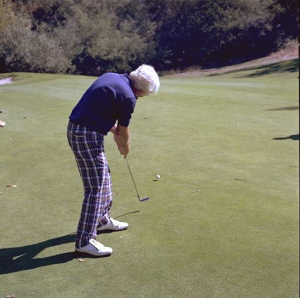Charlotte Personal Injury Attorney Matthew R. Arnold of Arnold & Smith, PLLC answers the question “Can I wait a few months to pursue a personal injury claim?”
A 77-year-old Irish golfer who sued Eddie Murphy after a golf club told him he had a 13 handicap watched Ireland’s High and Supreme Courts sink his lawsuit last week.
 The golfer, a retired insurance official from Dublin named Thomas Talbot, sued the Golfing Union of Ireland, the Hermitage Golf Club and Hermitage Officer Eddie Murphy in 2004 after the golf club sent Talbot a certificate showing he had a 13 handicap and was entitled to “General Play (Handicap Building).”
The golfer, a retired insurance official from Dublin named Thomas Talbot, sued the Golfing Union of Ireland, the Hermitage Golf Club and Hermitage Officer Eddie Murphy in 2004 after the golf club sent Talbot a certificate showing he had a 13 handicap and was entitled to “General Play (Handicap Building).”
Talbot felt his handicap was lower. By assigning him a 13 handicap, he believed, the golf club accused him of cheating.
Irish Supreme Court Justice Daniel Herbert rejected Talbot’s claim. While the justice conceded that the words “Handicap Building” could have been interpreted by fellow golfers to mean that Talbot was inflating his handicap, “the words were only published in a limited form to a computer programmer who designed software for the club, including for handicap records.” The limited, intra-club publication of the words meant that it “enjoyed qualified privilege from being sued,” Justice Herbert said.
 Charlotte Injury Lawyers Blog
Charlotte Injury Lawyers Blog









